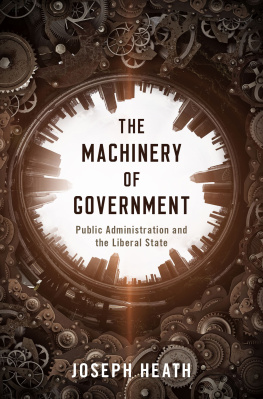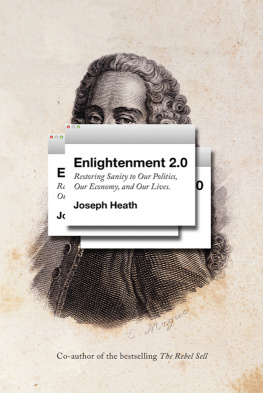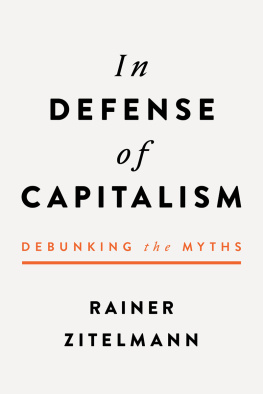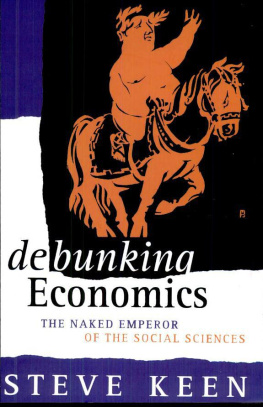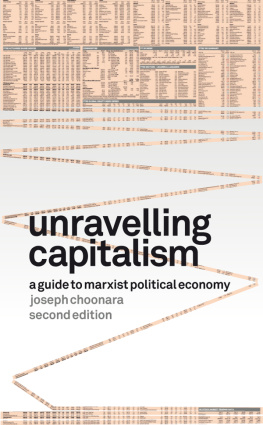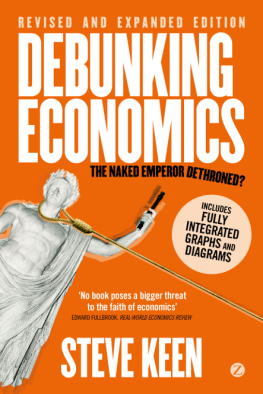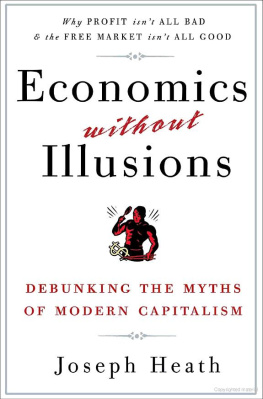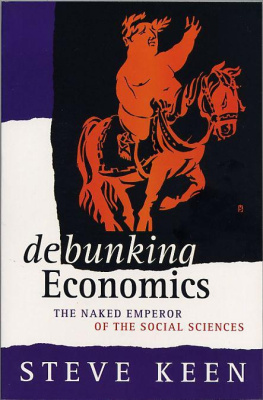Joseph Heath - Economics Without Illusions: Debunking the Myths of Modern Capitalism
Here you can read online Joseph Heath - Economics Without Illusions: Debunking the Myths of Modern Capitalism full text of the book (entire story) in english for free. Download pdf and epub, get meaning, cover and reviews about this ebook. year: 2010, publisher: Broadway Books, genre: Romance novel. Description of the work, (preface) as well as reviews are available. Best literature library LitArk.com created for fans of good reading and offers a wide selection of genres:
Romance novel
Science fiction
Adventure
Detective
Science
History
Home and family
Prose
Art
Politics
Computer
Non-fiction
Religion
Business
Children
Humor
Choose a favorite category and find really read worthwhile books. Enjoy immersion in the world of imagination, feel the emotions of the characters or learn something new for yourself, make an fascinating discovery.

- Book:Economics Without Illusions: Debunking the Myths of Modern Capitalism
- Author:
- Publisher:Broadway Books
- Genre:
- Year:2010
- Rating:3 / 5
- Favourites:Add to favourites
- Your mark:
- 60
- 1
- 2
- 3
- 4
- 5
Economics Without Illusions: Debunking the Myths of Modern Capitalism: summary, description and annotation
We offer to read an annotation, description, summary or preface (depends on what the author of the book "Economics Without Illusions: Debunking the Myths of Modern Capitalism" wrote himself). If you haven't found the necessary information about the book — write in the comments, we will try to find it.
Economics Without Illusions: Debunking the Myths of Modern Capitalism — read online for free the complete book (whole text) full work
Below is the text of the book, divided by pages. System saving the place of the last page read, allows you to conveniently read the book "Economics Without Illusions: Debunking the Myths of Modern Capitalism" online for free, without having to search again every time where you left off. Put a bookmark, and you can go to the page where you finished reading at any time.
Font size:
Interval:
Bookmark:
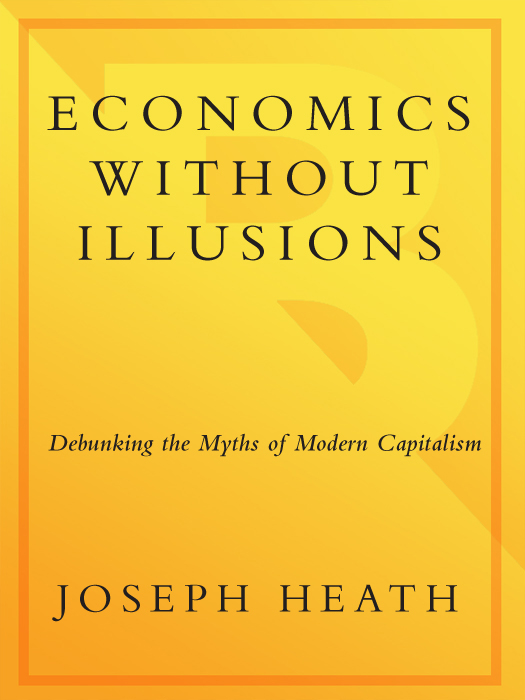
ALSO BY JOSEPH HEATH
Nation of Rebels
( WITH ANDREW POTTER )
The Efficient Society
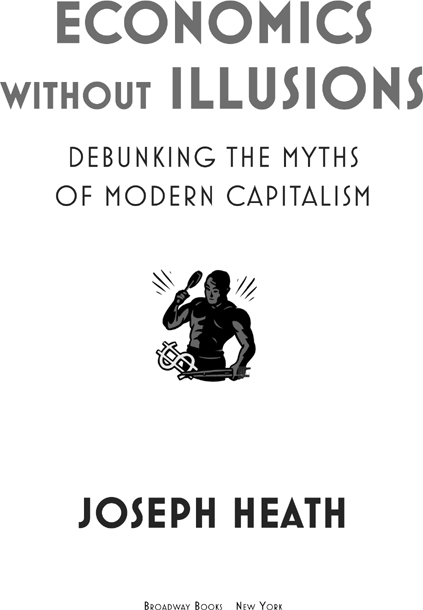
FOR OSCAR
PART I.
1. CAPITALISM IS NATURAL
Why the market actually depends on government
2. INCENTIVES MATTER
except when they dont
3. THE FRICTIONLESS PLANE FALLACY
Why more competition is not always better
4. TAXES ARE TOO HIGH
The myth of the government as consumer
5. UNCOMPETITIVE IN EVERYTHING
Why international competitiveness doesnt matter
6. PERSONAL RESPONSIBILITY
How the right misunderstands moral hazard
PART II.
7. THE JUST PRICE FALLACY
The temptation to fiddle with prices, and why it should be resisted
8. THE PSYCHOPATHIC PURSUIT OF PROFIT
Why making money is not so bad after all
9. CAPITALISM IS DOOMED
Why the system is unlikely to collapse (despite appearances to the contrary)
10. EQUAL PAY
Why some jobs must suck, in every aspect
11. SHARING THE WEALTH
Why capitalism produces so few capitalists
12. LEVELING DOWN
The wrong way to promote equality
As a nail sticketh fast between the joinings of stones,
so doth sin stick close to buying and selling.
ECCLESIASTICUS 27:2

INTRODUCTION
I was in high school when the movie Blade Runner first came out. Its difficult to explain to people now why the film was such a shock for audiences at the time, or how deeply it revolutionized science fiction as a genre. I can still remember the surprise I felt seeing the first panoramic view of the future city of San Angeles, where the entire side of a skyscraper hosted a giant video screen showing an advertisement with a smiling Japanese woman popping pills. Enormous dirigibles cruised through the night sky, with intrusive searchlights and a booming sound track advertising off-world emigration (the apparent objective being not so much to entice people off the planet as to drive them away).
Why was this so shocking? Because it was the first time anyone had ever suggested that there might be advertising in the futureor worse, that there might be even more of it in the future than in the present. Nuclear holocaust? Sure. Everyone assumed there was going to be an apocalyptic nuclear war. But advertising? Now thats bleak.
Science fiction at the time was dominated by dystopian visions of the futureBattlestar Galactica was set just shortly after the near-annihilation of the human race by renegade robots; Space: 1999 occurred after catastrophic explosions knocked the earths moon out of its orbit; Planet of the Apes was, of course, none other than Planet Earth, several generations after the seemingly inevitable nuclear war. Yet no matter how depressing the vision of the future, the dominant assumption was that we would not still be buying and selling things from one another. Capitalism, along with all of its gaudy accoutrements, was regarded as merely a step on the road to a higher level of civilization.
In the old Star Trek series, capitalism was forthrightly dismissed as a primitive stage of human social evolution. This was often played for comic effect, as when members of the Enterprise beamed down to the surface of some backward planet and acted confused when confronted by a demand from an alien merchant for something called money. The closest thing we ever saw to capitalism was in the first Star Wars movie, when Obi-Wan Kenobi and Han Solo settled on a price of 17,000 credits for the hire of the Millennium Falcon. But even then, in the famous Mos Eisley
Cantina, where the scum of the galaxy assembled for drinks and intrigue, there were several notable omissions. Not only was there no advertising at all in the bar, but there didnt seem to be any brands either. In the future, we were led to believe, people would drink just plain old beer, not Jedi Lite.
These omissions were highly characteristic of the science fiction of the time. There were two things that science fiction writers almost uniformly failed to anticipate, right through to the end of the 1970s. The first was the impact that information technology would have on everyday life. It was generally assumed that the development of mechanical technology would be the most powerful force for change in human society: robots were to have been the big story, not computers. The second major assumption was that the market would fade away. No one could quite believe that, in the twenty-first century, we would still be living in an old-fashioned capitalist economy. It was almost universally assumed that the future would be some kind of post-scarcity socialism, not information hypercapitalism.
If people had a hard time believing that we would still be living in a capitalist economy in the twenty-first century, imagine how much more difficult it would have been for them to believe that we would still be having exactly the same debates about the pros and cons of the market. Indeed, if you look at the state of this debate at the time of Karl Marxs death, and compare it to today, it would be easy to come to the conclusion that we have gotten precisely nowhere. People may be a lot more resigned to the market now than they were a hundred years ago, but they are not necessarily any more comfortable with it.
So what are we to make of this unexpected persistence of capitalism? John Kenneth Galbraith once observed, with respect to American capitalism, that in principle the economy pleased no one; in practice it satisfied most. But since having prices that will go up in response to scarcity is the single most important advantage of having a capitalist economic system, this moral intuition reveals something of a public relations problem for fans of the free market.
Indeed, everyone has at least some moral intuitions that are implicitly, if not explicitly, anticapitalist. This is why there has always been good money to be made from pandering to popular anticapitalist sentiment (Hollywood does it quite relentlessly, mainly by romanticizing the good old days, when life was about more than just money). Against this tide of popular opinion, who is willing to speak up for the free market? Probably the most sustained campaign against popular anticapitalism has been waged by members of the economics profession. According to the standard refrain, people are uncomfortable with markets only because they dont understand them. The solution is more education, or, more specially, more economics classes. (Bryan Caplan, an economist at George Mason University, has recently suggested that the votes Hence the hallowed status of Economics 101the course that introduces students to the model, or the way of looking at things that makes capitalism seem like not just an acceptable compromise, but the best of all possible worlds.
Of course, not everyone goes to university, and not everyone takes Economics 101. For those who miss out, there are shelves full of popular economics books, like
Font size:
Interval:
Bookmark:
Similar books «Economics Without Illusions: Debunking the Myths of Modern Capitalism»
Look at similar books to Economics Without Illusions: Debunking the Myths of Modern Capitalism. We have selected literature similar in name and meaning in the hope of providing readers with more options to find new, interesting, not yet read works.
Discussion, reviews of the book Economics Without Illusions: Debunking the Myths of Modern Capitalism and just readers' own opinions. Leave your comments, write what you think about the work, its meaning or the main characters. Specify what exactly you liked and what you didn't like, and why you think so.

